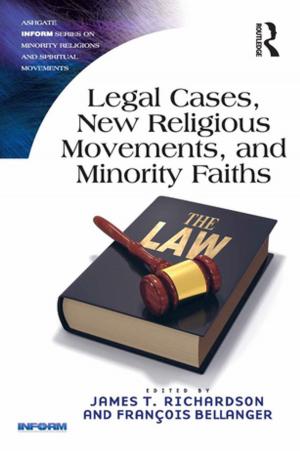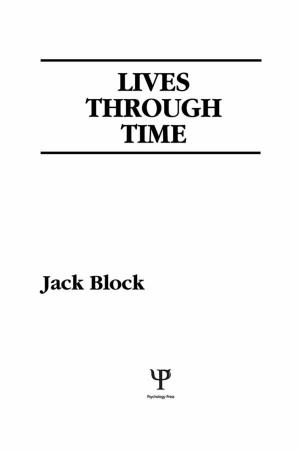Cuts and Criminality
Body Alteration in Legal Discourse
Nonfiction, Reference & Language, Law, Public, Criminal law| Author: | Theodore Bennett | ISBN: | 9781317155409 |
| Publisher: | Taylor and Francis | Publication: | March 9, 2016 |
| Imprint: | Routledge | Language: | English |
| Author: | Theodore Bennett |
| ISBN: | 9781317155409 |
| Publisher: | Taylor and Francis |
| Publication: | March 9, 2016 |
| Imprint: | Routledge |
| Language: | English |
This book investigates how and why the criminal law differentiates between different types of body alterations, with particular reference to how they are conceptualised within legal discourse. By drawing connections between types of body alteration that have traditionally been considered separately and discretely, the book allows analytical conclusions to be made about the law’s treatment of the general category of ’body alteration’ rather than merely about specific types of body alteration. Taking legal discourse as its analytical focus, the author critically examines a number of case studies to determine the techniques and processes by which some body alterations are discursively constructed as legitimate and legally approved, and by which other body alterations are discursively constructed as illegitimate and legally sanctioned. Specifically, the body alterations that are addressed include sadomasochistic injuries; female genital modification and male circumcision; cosmetic surgery, body modification and healthy limb amputation; and sex reassignment surgery and genital ’normalisation’ surgery. International in scope, the discursive analysis in the book will be of interest to academics and researchers working in the areas of socio-legal and cultural studies.
This book investigates how and why the criminal law differentiates between different types of body alterations, with particular reference to how they are conceptualised within legal discourse. By drawing connections between types of body alteration that have traditionally been considered separately and discretely, the book allows analytical conclusions to be made about the law’s treatment of the general category of ’body alteration’ rather than merely about specific types of body alteration. Taking legal discourse as its analytical focus, the author critically examines a number of case studies to determine the techniques and processes by which some body alterations are discursively constructed as legitimate and legally approved, and by which other body alterations are discursively constructed as illegitimate and legally sanctioned. Specifically, the body alterations that are addressed include sadomasochistic injuries; female genital modification and male circumcision; cosmetic surgery, body modification and healthy limb amputation; and sex reassignment surgery and genital ’normalisation’ surgery. International in scope, the discursive analysis in the book will be of interest to academics and researchers working in the areas of socio-legal and cultural studies.















